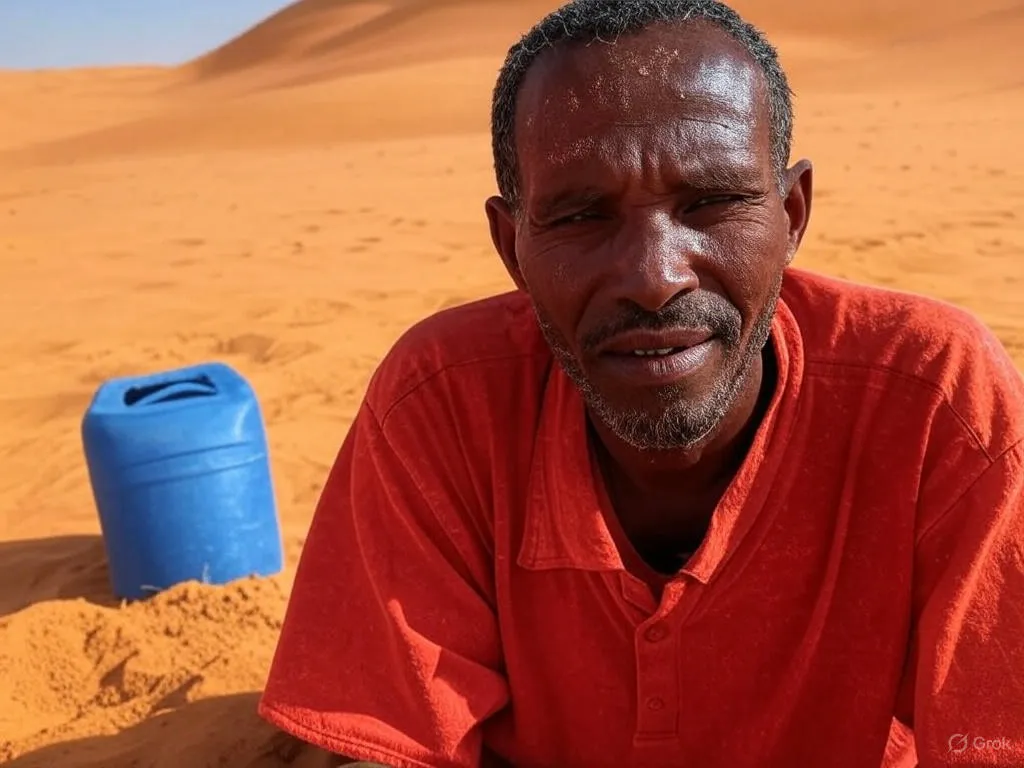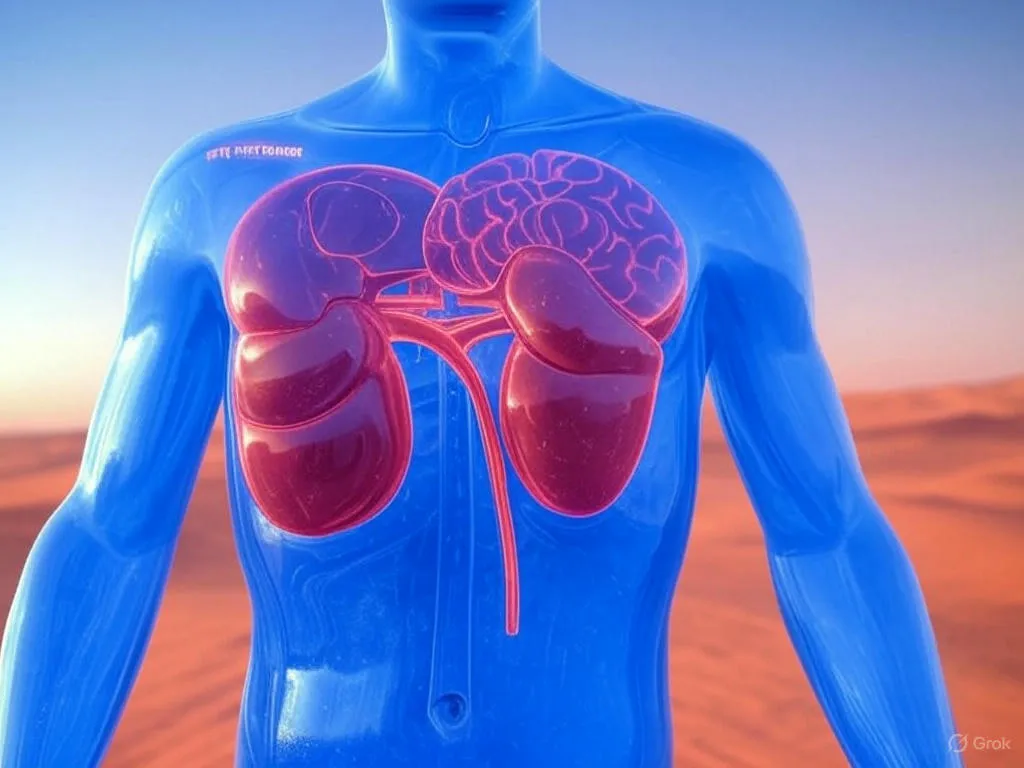Table of Contents

Water is essential for life, constituting a significant portion of the human body and playing a critical role in various physiological processes. Despite its importance, many of us often overlook the necessity of staying hydrated. As we navigate our busy lives, it’s crucial to understand the limits of human endurance, particularly regarding our dependence on water. One of the most pressing questions in discussions about survival and hydration remains: How long can a person survive without water?
Understanding the Importance of Water
Before delving into survival timelines, it’s essential to recognize why water is vital. The human body is composed of approximately 60% water, making it the most abundant substance in our bodies. Every cell, tissue, and organ requires water to function optimally. Water aids in digestion, nutrient absorption, temperature regulation, and the elimination of waste.
Dehydration occurs when the body loses more fluids than it takes in. This imbalance can lead to a range of issues, from mild discomfort to severe complications. As water intake decreases, the body reacts in various ways to conserve its remaining fluid. Symptoms of dehydration can include:
- Dry mouth and throat
- Fatigue
- Dizziness
- Confusion
- Rapid heartbeat
In extreme cases, severe dehydration can lead to life-threatening conditions.
The Average Survival Time Without Water
In terms of survival, the general consensus is that an average person can survive without water for about 3 to 7 days. However, this timeframe can be influenced by several factors, including:
- Health and Age: Young children, elderly individuals, and those with pre-existing health conditions may find their bodies are less equipped to handle dehydration.
- Activity Level: Engaging in strenuous physical activity increases fluid loss through sweat and respiration, significantly shortening survival time without water.
- Environment: Extreme temperatures can accelerate dehydration. In hot conditions, the body loses water rapidly, necessitating more frequent hydration. Conversely, in cold conditions, dehydration can still occur, albeit at a different rate.
- Diet: The type of food consumed can also impact hydration. A diet high in salty or sugary foods can lead to increased thirst and a greater need for water.
- Body Composition: Individuals with higher body fat percentages may have a slightly reduced survival time without water, as fat tissue contains less water compared to lean muscle.
The Anatomy of Dehydration

To understand how long a person can survive without water, it’s crucial to grasp the stages of dehydration:
- Mild Dehydration (1-2% body weight loss): Symptoms include thirst, dry mouth, and fatigue. This stage usually does not pose immediate risk but signals the need for hydration.
- Moderate Dehydration (3-5% body weight loss): Individuals may experience headaches, dizziness, and reduced urine output. At this stage, the body’s ability to function starts getting compromised.
- Severe Dehydration (6-10% body weight loss): This can result in serious health risks, including kidney damage and shock. Symptoms can include rapid heart rate, confusion, and fainting.
- Critical Dehydration (more than 10% body weight loss): This stage is life-threatening and can lead to organ failure and death if not addressed immediately.
Case Studies and Real-World Examples
While the averages provide a useful guideline, real-world cases demonstrate that survival without water can vary widely. For instance, in extreme survival situations, individuals have been documented surviving longer than one week without water, albeit under very specific circumstances, such as minimal physical activity and cooler temperatures.
One famous case is that of a man stranded in the desert who survived for over eight days without water. He attributed his survival to rationing whatever moisture he could find and minimizing his exertion. However, it’s important to note that such cases are exceptions rather than the rule.
Conversely, there are many documented cases of individuals succumbing to dehydration in as little as three days due to extreme heat and exertion. These examples underscore the critical need to assess individual circumstances when considering survival timelines.
Hydration Strategies

Given the importance of hydration and the risks associated with dehydration, it’s essential to develop strategies for maintaining adequate water intake. Here are some effective tips:
- Drink Regularly: Don’t wait until you’re thirsty. Make a habit of drinking water throughout the day, especially in hot weather or during physical activity.
- Monitor Urine Color: A simple way to gauge hydration status is by checking the color of your urine. Pale yellow indicates good hydration, while dark yellow may signal dehydration.
- Eat Hydrating Foods: Incorporate fruits and vegetables that have high water content, such as cucumbers, oranges, and watermelon, into your diet.
- Limit Caffeinated Beverages: While caffeine has diuretic properties, moderate consumption is usually acceptable. However, excessive intake can lead to increased fluid loss.
- Avoid Alcohol: Alcohol can lead to dehydration, so it’s wise to limit intake, especially in warm conditions where your body is already losing fluids.
- Prepare for Physical Activity: If you’re engaging in intense physical exercise, ensure you’re hydrating before, during, and after your activity. Consider electrolyte drinks if exercising for prolonged periods.
- Be Mindful of Weather Conditions: Adapt your hydration strategy based on the environment. In hot weather, increase fluid intake, while in cold weather, maintain hydration even if you don’t feel thirsty.
- Use Reminders: Set reminders on your phone or use apps focused on hydration to help you remember to drink water at regular intervals.
Consequences of Dehydration
It’s essential to recognize the severe consequences dehydration can inflict on your health and well-being. Prolonged dehydration can lead to:
- Kidney Issues: The kidneys are essential for filtering waste from the blood and maintaining fluid balance. Chronic dehydration can lead to kidney stones and even kidney failure.
- Cognitive Impairment: Studies show that dehydration can adversely affect cognitive functions, leading to difficulties with concentration, alertness, and overall mental performance.
- Physical Performance Decline: In athletes and active individuals, dehydration can reduce endurance, increase fatigue, and impair strength. This can lead to poor performance and higher injury risk.
- Heat Stroke: In extreme cases, dehydration can contribute to heat stroke, a life-threatening condition caused by the body overheating, often due to prolonged exposure to high temperatures or vigorous exercise.
The Role of Water in Emergency Preparedness
Understanding the implications of dehydration also highlights the importance of water in emergency preparedness. Whether it’s for natural disasters, outdoor adventures, or survival situations, having a water supply plan is crucial:
- Store Adequate Water: Keep an emergency water supply at home. The general recommendation is at least one gallon per person per day for at least three days.
- Portable Water Filters: If you’re hiking or camping, invest in portable water filters or purification tablets. These can turn potentially unsafe water sources into drinkable water.
- Know Your Sources: Familiarize yourself with local water sources, whether you’re at home or on the go. Knowing locations of streams, rivers, or lakes can aid in survival situations.
- Educate Yourself: Learn about local flora and fauna that can provide fluid sources in emergencies. For example, certain plants may offer moisture through their leaves or roots.
Final Thoughts: The Lifeline of Hydration
Understanding how long a person can survive without water underscores the critical role hydration plays in maintaining health and well-being. The average survival time may range from 3 to 7 days, but various factors can dramatically alter this outcome.
It is vital to prioritize hydration in our daily lives, recognizing the signs of dehydration and taking proactive steps to maintain adequate fluid intake. By integrating effective hydration strategies into our routines, we can enhance our physical health, cognitive function, and overall quality of life.
Furthermore, in any survival scenario, knowledge and preparedness regarding water resources can make a significant difference between life and death. Just as air is essential for breathing, water stands as the lifeline of survival, and respecting this element is crucial for every individual.
In conclusion, whether contemplating outdoor adventures, addressing health concerns, or preparing for emergencies, the foundational knowledge about water and its essential role cannot be overstated. Embracing the habit of regular hydration and being aware of one’s own body’s needs is the key to thriving in both everyday life and extreme conditions. The question of how long a person can survive without water serves as a potent reminder of our dependence on this vital resource—one that we often take for granted until we find ourselves in critical situations.
Read Also: The Edibility of Kiwi Peel: A Comprehensive Exploration
